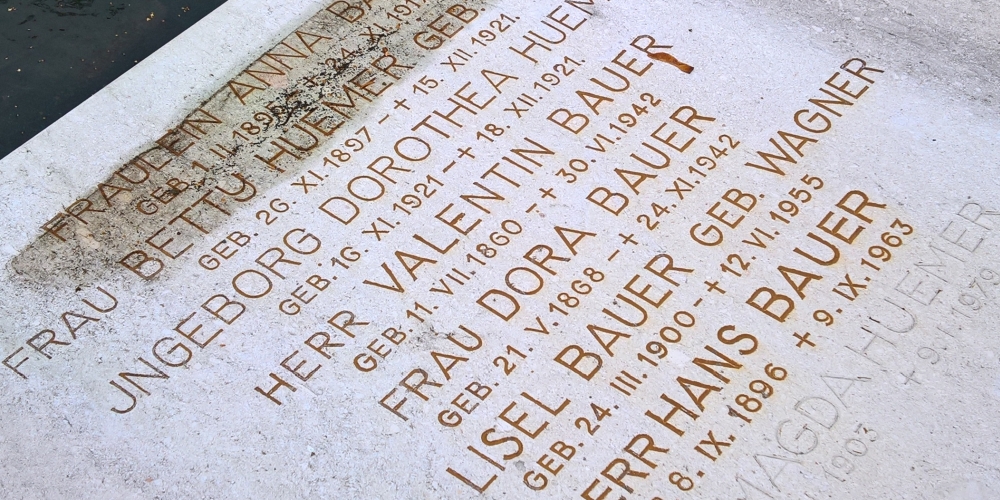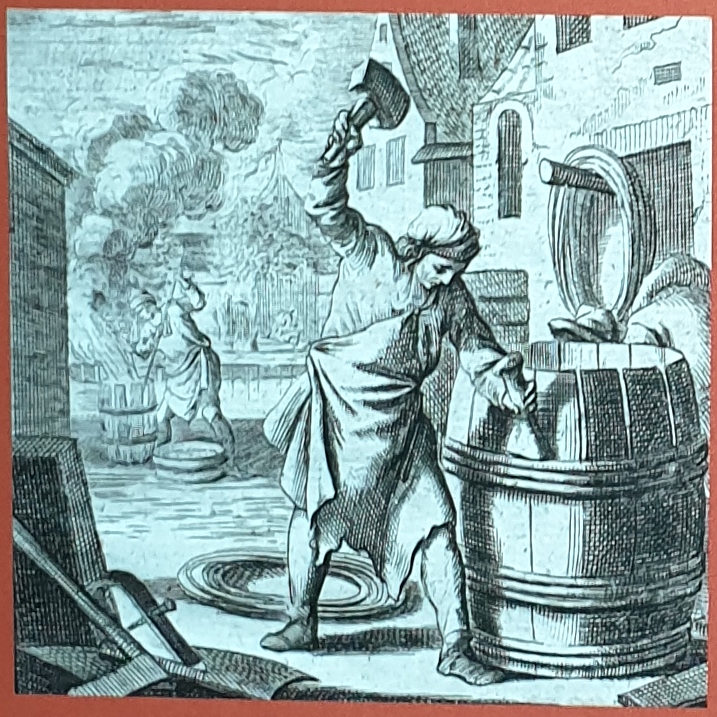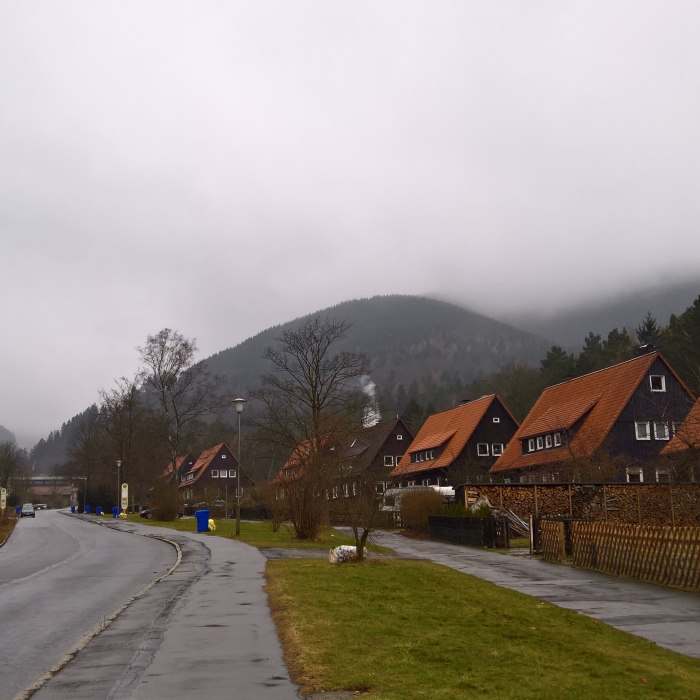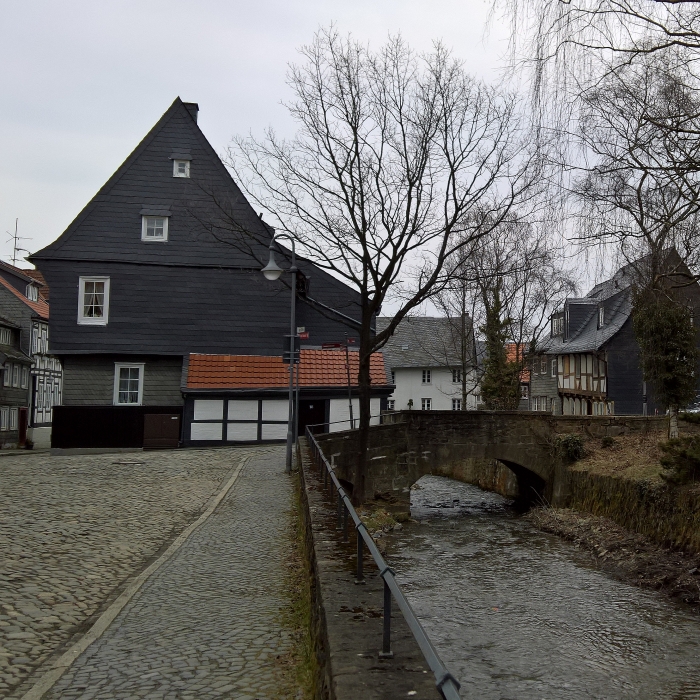Insults or swear words – these are often the first words you learn in a language. I grew up not far from the German-Polish border. The first words I learned in Polish were “Kurwa” and “spir dalay”. With a Turkish friend, I pondered which groups are subsumed under “Kanaks”. Only Turks, or also Arabs or Persians?
Here I would like to write down a few common swear words and insults. I hardly use any of them myself. But I know them and write the words down without glossing over them.
Imagine: A French woman, a Danish woman, an Arab and a German sitting together and exchanging about insults in their countries. That’s how I went through a draft for this lexicon. Adult people have no problem talking about it. So please don’t get scared.
The words are always contextual. There are some that are neutral according to the dictionary. Depending on the situation, however, they have a pejorative meaning.
This list is purely scientific and only represents reality.
It is subjectively commented and evaluated by me.
meaning of the colors
| weak | you can use them with friends and normally it won’t be understood personally (used in jokes) |
| medium | words that can make people aggressive if you call them that way |
| strong | depending on who you are insulting this way, you can get serious trouble… |
this classification shows the scale of “negative respect”
Insults from people related to:
Insults can be divided into categories. By the way: I always use the masculine form. There is often only one masculine form of the word.
cognitive abilities
| “Idiot” | English: “idiot”: It is known in many languages. Idiocy was originally a medical diagnosis for people with thought disorders. Used today to insult someone for being stupid. |
| “Depp” | Like “Idiot”, but a little weaker. With an ironic undertone, you can also tell a friend “Du bist ein Depp!” (“You’re an Idiot!”) when you honestly want to say that they did something stupid. |
| “Trottel” | Similar to Depp. Here, however, more that someone is clumsy. |
| “Hirni” | |
| “Knallkopf”, “Knaller” | literally “explosive head” :In the sense of “very conspicuously stupid”. “Knaller” can also be ironically positive. |
| “Heini” |
This article is not translated further
social group
| Wort/Varianten | Info |
|---|---|
| “Horst”, “Vollhorst” | Bezieht sich auf den Vornamen “Horst”, der aus der Mode gekommen ist. |
| “Bauer” | (dieses Wort kann neutral oder als Beleidigung genutzt werden). Bezieht sich auf den Beruf Bauer oder Landwirt. Wird im Bezug darauf genutzt, dass Menschen aus ländlichen Gebieten ungebildet seien. |
| “Proll”, “Prolet” | Von “Proletarier”, bezieht sich auch auf soziale Gruppen, denen man unterstellt sie seien ungebildet. Anders als beim “Bauer” hat der Begriff seinen Ursprung bei einfachen Arbeitern (in der Stadt). |
| “Bonze” | Genutzt für Menschen in höheren Positionen, um sie als arrogant und weit entfernt vom einfachen Menschen darzustellen. Z.B. “Parteibonze” |
| “Schnösel” | Ähnlich wie “Bonze”. Aber eher für einen selbstgefälligen, reichen, arroganten Menschen. In anderen Sprachen: Google übersetzt es ins Englische als “prig” |
| “Penner” | Das klassische Schimpfwort für obdachlose Menschen. Von “pennen”, einem umgangssprachlichen Begriff für schlafen. Ein Penner ist jemand, der auf der Straße pennt/schläft. In anderen Sprachen: Google übersetzt es ins Englische als “jerk” |
| “Hartzer” | Ein dauerhaft Arbeitsloser. Meist im Kontext von ungebildeten Leuten, die zuhause sitzen, evtl. tagsüber trinken und rauchen. Kommt von “Hartz4”, dem umgangssprachlichen Begriff für das Arbeitslosengeld 2, welches Langzeitarbeitslose zur Unterstützung bekommen. “Einen auf Hartz IV machen” ist die abfällige Umgangssprache für “Von Hartz 4 leben”. Kann aber auch selbstironisch genutzt werden. |
sonstige Eigenschaften
| Wort/Varianten | Info |
|---|---|
| “Weichei” | Wie ein weiches Ei… D.h. schwach, ängstlich, also jemand der sich etwas nicht traut. Man kann jemanden sagen “Du bist ein Weichei!” wenn man jemanden dazu bringen möchte sich etwas zu trauen. |
| “Pussy” | auch jemand “weiches”. Weich wie eine Frau, oder besonders weiche Frau |
| “Muttersöhnchen” | Jemand Unselbstständiges. Jemand, der davon abhängig davon ist was die Mutter sagt. Gilt für Kinder und auch für erwachsene (Männer). |
| “Alki” | Kurzform und Umgangssprache für “Alkoholiker”. Bei unteren soziale Schichten genutzt. |
| “Suffkopp”, “Suffi” | Wie “Alki”, aber nicht in allen Regionen genutzter Ausdruck. Bezieht sich auf “Saufen” als vulgäres Wort für “(Alkohol) trinken”. Aus dem hochdeutschen Sauf-Kopf (was niemand nutzt) wird Suff-Kopp. |
| “Schisser” | Jemand, der besonders viel Angst hat. (Jemand, der sich vor Angst “in die Hose scheisst”) |
| “Bastard” | Ursprünglich ein unehelich geborenener Sohn. Diese eigentliche Bedeutung spielt heute keine Rolle, denn in der deutschen Mehrheitsgesellschaft sind Kinder, die nicht in einer Ehe geboren wurden nichts moralisch Verwerfliches mehr wie noch vor vielen Jahren. Das Wort wird aber noch benutzt, weil es mit “minderwertig, verkommen, ehrenlos” verbunden wird. |
Vergleiche mit Tieren
| Wort/Varianten | Info |
|---|---|
| “Schwein”, “Sau” | Sehr allgemein als Beleidigung genutzt. Geht auf das Klischee zurück, das Schweine sehr unsauber sind (Was aber tatsächlich nicht stimmt). Mit einer Verbindung mit Schwein oder Sau (weibliches Schwein) damit kann man aus einem neutralen Begriff eine Beleidigung machen: “Bayern-Schweine” (Fussball, FC Bayern), “Schweine-System” (meist von Linksextremisten gebraucht)… |
| “Kuh” | “Kuh” als schwerfälliges Tier wird auch als Schimpfwort für Frauen benutzt. Oft wird es dann von Frauen für andere Frauen benutzt. |
| “Affe” | Wenn man jemand als “leicht Verrückten” bezeichnen möchte. Kann auch rassistisch genutzt werden, um jemanden zu entmenschlichen. |
| “Ratte” | Um Jemanden als hinterlistig und schmutzig zu beleidigen. |
| “Ungeziefer” | für Gruppen |
| “Bulle” | Beleidigung und abfälliges Wort für Polizisten. Im Englischen “cop” oder “pig” |
| “Hund” | Vorrangig durch türkisch/arabische Migranten benutzt. “Du Hund!” |
| (falsche) “Schlange” | eine hinterlistige Frau |
| “Brillenschlange” | hauptsächlich durch Kinder benutzt, um andere Kinder abzuwerten, die eine Brille tragen |
| (Köter) | “Köter” ist eine “Beleidigung” für Hunde. Für Menschen wird sie üblicherweise nicht genutzt. |
Sau-…, aber auch Schweine-… sind Verstärker, also positiv oder negativ (saugeil, saugut, schweinekalt, saukalt)
Sexualität
| Wort/Varianten | Info |
|---|---|
| “Wichser” | |
| “Schlampe”, “Nutte”, Hure | |
| “Hurensohn” | |
| “Fotze” | abfällige Bezeichnung für das primäre weibliche Geschlechtsorgan, das auch als starkes Beleidigung für die ganze Frau genutzt wird. |
| “Tunte”, “Homo”, “schwul” | verliert langsam beleidigenden Charakter |
| “Schwuchtel” | abfällige Bezeichnung für Schwule/ homosexuelle Männer. Wird allerdings oft auch für nicht-homosexuelle Männer benutzt und hat eine ähnliche Bedeutung wie “Weichei” oder “Pussy” |
| “Arschficker” | besonders abfällige Bezeichnung für Schwule/ homosexuelle Männer. |

Schmutz / Fäkalien
| Wort/Varianten | Info |
|---|---|
| “Arsch”, “Arschloch” | eine häufig benutzte “Standard-Beleidigung” |
| Scheiße, bzw. Scheiß-“…” | Kann als Adjektiv benutzt werden oder etwas beliebiges wird als “Scheiß” bezeichnet. Oft auch als Zusammensetzung mit normalen Worten. Beispiel: “Auto” ist ein neutrales Wort. Mit “Scheiß-Auto” drückt man aus, dass es ein schlechtes Auto ist. |
| Drecks… | selbes Prinzip wie “Scheiß…” (Drecks…) Verstärkung wie Sau/Schwein Für …Schlampe, …sau, …schwein Beispiel: Drecksfotze. Aber auch Dinge wie “Drecksauto”, “Dreckstür”, Dreckssoftware etc. |
| Mist, Mist…, Miststück | “Mist” ist funktioniert genauso wie Dreck oder Scheiß. Ist aber etwas schwächer. Sehr verbreitet ist das Wort “Miststück” – eine typische Beleidigung von Frauen für Frauen. |
Herkunft / Ethnie / Rasse
| Wort/Varianten | Info |
|---|---|
| “Kanake” | Beleidigung für Einwanderer aus dem vorderasiatischen Raum, besonders für Türken in Deutschland. Wird von Türken auch als identitätsstiftende Selbstbezeichnung benutzt (ähnlich wie “Nigger” in den USA benutzt). Das Wort hat seinen Ursprung als Selbst-Bezeichnung von Südsee-Völkern und ist wohl durch die europäische Kolonisierung dort nach Europa gekommen. Wie das Wort genau verbreitet wurde und wie es zur Beleidigung wurde ist unbekannt. Für Interessierte: https://www.welt.de/kultur/article154409100/Wie-Kanake-zum-rassistischen-Hasswort-wurde.html |
| “Kartoffel” / “Hans” | Deutsche (von Türken und Türkeistämmigen für Urdeutsche benutzt) |
| “Alman” | Ähnlich wie “Kartoffel” / “Hans”. Bedeutet eigentlich nur “Deutscher” auf türkisch bzw. arabisch. Es wird von Türken, Türkeistämmigen und Arabern aber auch so benutzt, dass Urdeutsche abfällig/verächtlich/respektlos benannt werden. In den letzten Jahren wird er aber manchmal auch von Deutschen ohne Migrationshintergrund genutzt, um eine bestimmte Gruppe von Deutschen zu bezeichnen. Für “verweichlichte, über-tolerante, nette Deutsche, die sich nicht wehren, wenn man sie angreift oder beleidigt”. Also die Gruppe, die tatsächlich dem Klischee entspricht, das viele Einwanderer aus dem Nahen und Mittleren Osten von Deutschen haben. |
| “Bimbo” | für Schwarze, “Nigger” als englisches Wort ist selten. Das Wort “Neger” (engl. “negro”) ist schwer zu beurteilen. Es erlebt gerade einen Wandel. Früher allgemein und heute bei einem Teil der Bevölkerung (meist Ältere) ist es nicht als Beleidigung gemeint, sondern (wenn auch leicht abfällig) als Wort für Schwarze. Mehr und mehr wird es aber als Beleidigung definiert. |
| “Jude” | Neutrales Wort, das als Schimpfwort benutzt werden kann. “hinterhältig”, sehr politisch unkorrekt. Wird aber noch benutzt, oft von Türken/Arabern oder Staatsbürgern mit arabisch/türkischem Hintergrund |
| “Nazi” | eigentlich für Neonazis und Rechtsextreme, wird aber oft benutzt um jemanden zu diffamieren oder anzuschuldigen. Unterstellung von Rassismus (von Europäern) |
| “Polacke” | für Polen |
| “Schlitzauge” | für Asiaten. Daneben gibt noch das Wort “Fidschi”, dass in Ostdeutschland genutzt wird. |
| “Spaghetti” / “Itacker” | Italiener |
| “Froschfresser”, “Franzacke” | Franzosen |
| “Schluchtenscheisser” | Österreicher |
| “Piefke” | In Österreich ein beleidigender Ausdruck für Deutsche. (“Piefke” war ein deutscher Komponist?!) |
| “Saupreiß” | In Bayern für alle Nicht-bayerischen Deutschen. Früher ernst, heute eher ironisch |
| “Gelbfüssler” | für Baden-Würtemberger (nur Badener?) -> historischer Ursprung. Heute aber keine starke Beleidigung. |
Behinderungen und Aussehen
| Wort/Varianten | Info |
|---|---|
| “Krüppel” | |
| “Mongo” | bezieht sich ursprünglich auf das Down-Syndrom (abgeleitet von Bezeichnung) |
| “Spast” | von Spastiker, heute ist die Bedeutung meist aber nicht mehr bekannt, wird wie “Idiot” genutzt |
| “behindert” | Neutrales Wort, das als Schimpfwort benutzt werden kann. “Du bist doch behindert!” |
| “Missgeburt” | selbsterklärend? |
| “hässlich” | selbsterklärend |
| “Hackfresse” | |
| “Fettwanst”, “fett” | auf Aussehen bezogen, “fette Kuh” |
Ursprünglich religiöse Wörter und Sonstiges
| Wort/Varianten | Info |
|---|---|
| “Sack” | |
| “Teufel” | religiöser Ursprung, heute veraltet |
| “Gesochs”, “Pack”, “Abschaum” | für Gruppen |
Es gibt noch so viele mehr, aber für die einen bin ich zu alt, andere sind regional und andere habe ich noch nie gehört.
Beleidigende Ausdrücke
Die Beleidigungen, die ich hier aufgezählt habe werden genutzt, indem man sagt dass jemand … ist. Genauso wie für Menschen gilt das auch für Tiere und Dinge.
Z.B. “Du bist ein Arschloch!”
Daneben gibt es noch “beleidigende Ausdrücke”
- “Fick dich!” (Kurzform von “Fick dich selbst!”) -> Wie das englische “Fuck you!” (auch die Englische Version wird in Deutschland genutzt, gefühlt noch häufiger)
- “Ich ficke Dich!”, “Ich ficke… deine Mutter/Freunde/etc.!”, so wie “Ich mache dich fertig!”-> im Sinne von jemanden etwas Schlechtes antun (z.B. schlagen)
-> hier gibt es aber unzählige Ausdrücke, die das gleiche meinen, die aber mehr oder weniger vulgär sind - “Verpiss Dich!” -> vulgär für “Geh weg!” oder “Verschwinde!”. Wenn man über andere redet (“Er hat sich verpisst”) dann bedeutet dass, dass die Person sich still/heimlich/aus Angst entfernt hat. (Dieser Ausdruck kommt aus der Militärsprache -> dazu mehr in einem anderen Beitrag), Englisch “piss off!”
Straftatbestände, Urteile und Strafen
Beleidigung (von Einzelpersonen)
(Paragraf 185 des Strafgesetzbuches)
In diesem Paragrafen steht nicht viel, auch wird dort nicht definiert was eine Beleidigung ist. Man kann es erkennen wenn man sich Gerichtsurteile ansieht. Ob etwas eine Beleidigung ist (oder nicht) wird also vor Gericht, von Richtern festgestellt. Wer sich beleidigt fühlt muss also erst einmal eine Anzeige erstatten.
Der Paragraf 185 StGb besagt, dass eine festgestellte Beleidigung mit Gefängnis bis maximal einem Jahr oder mit einer Geldstrafe bestraft werden muss. Wenn bei einer Beleidigung auch eine körperliche Handlung (Ohrfeige, Anspucken etc.) dazukommt wird das Strafmaß höher. Dann sind es maximal 2 Jahre Gefängnis. (Eine Strafe wegen Beleidigung läuft aber immer auf eine Geldstrafe hinaus, ich habe noch nie von einer Gefängnisstrafe wegen Beleidigung gehört)
Volksverhetzung (Beleidigung von “Minderheiten”)
(Paragraf 130 des Strafgesetzbuches)
Gegen Beleidigung von Personen und ganze Bevölkerungsgruppen (Herkunft, Rasse, Ethnie, Religion). Zum Beispiel wenn jemand alle Schwarzafrikaner beleidigt.
Der Artikel bezieht sich aber ausdrücklich auf Minderheiten-Gruppen. Deutsche fallen nicht darunter, so dass der Paragraf auch kritisiert wird. Es gibt zum Beispiel ein Gerichtsurteil in dem gesagt wird, dass eine Beleidigung von Deutschen nicht unter diesen Artikel fallen kann. Im “Köterrasse”-Fall hat ein Türkeistämmiger in einem Twitter-Post alle Deutschen als “Hundeclan”/”Köterrasse” (anders gesprochen Rasse von dreckigen Hunden) bezeichnet. Dies wurde in Hamburg nicht als “Volksverhetzung” gewertet. Würde aber ein Deutscher türkischstämmige Bürger so beleidigen, also im umgekehrten Fall wäre es eine Straftat.
Zusätzlich werden damit positiver oder relativierende Äußerungen zu bestimmten Verbrechen im Nationalsozialismus (1933-1945) abgedeckt. So auch, wenn man den Holocaust leugnet – d.h. zu behaupten dass er nicht stattgefunden hat. Viele Straftaten bezüglich dieses Paragrafen beziehen sich auf dieses Themenfeld.
Ausdruck von Ärger
“Scheiße!”, “Verdammt!”, “Mist!”, “So ein Scheiß…” sind Ausdruck von Ärger. Sie sind keine Beleidigungen gegen Personen, sondern so etwas wie “Beleidigungen von Situationen oder Dingen”.
“Verflixt!” oder “Kruzifix!” sind Beispiele für Ausdrücke, die heute veraltet sind. Sie werden meistens nur noch ironisch benutzt.
Diese Ausdrücke führen uns aber schon in ein anderes Thema. Das allgemeine Thema der “vulgären Sprache”. Dies werde ich aber in einem anderen Beitrag behandeln.







